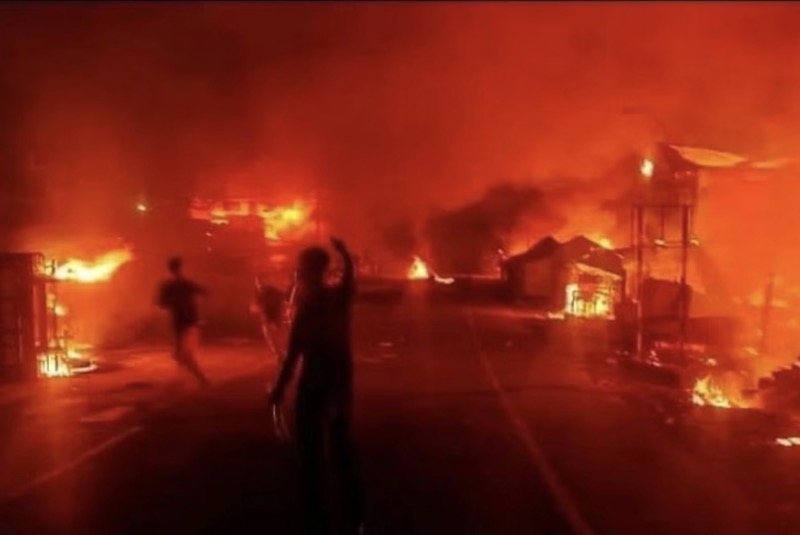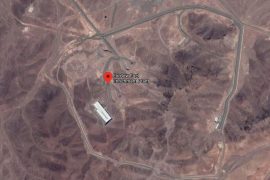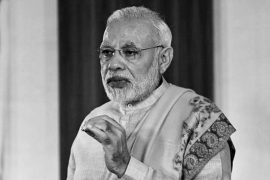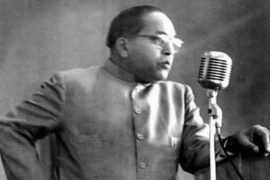It’s said Emperor Nero played the fiddle while Rome was burning. Historians have pointed out that the story is baseless. The fiddle was not there in Rome during Nero’s time, and his favourite instrument was the lyre. When the fire began, he was 35 miles away from Rome. However, it is true that Nero availed of the fire to blame the Christians and started a wave of persecution, the first of many.
It would be wrong to say that the Central Government behaved like Nero, even though the fact remains that the Union Home Minister could find time to go to Manipur only three weeks after the fire started. In short, the fire raged on for three weeks before the fire brigade in the nation’s capital thought of taking note of it. In defence of the Home Minister, it can be argued that the all-important Karnataka State elections merited his attention.
Prime Minister Modi, in his super popular Mann ki Baat on 17 June 2023, spoke about the dark days of the Emergency imposed by Prime Minister Indira Gandhi on 25 June 1975. He spoke about the ravages of cyclone Biparjoy in Gujarat. He had no time to say even a word about Manipur, where violent clashes were occurring with the state government abdicating its primary responsibility. Obviously, that upset many in Manipur.
We do not know how many listened to Modi in Manipur. But we do know that about twenty people gathered on the street; after listening for a few seconds, one of them threw down the transistor radio, and they all had the vicarious pleasure of smashing it into smithereens.
The mainstream media, print and electronic, have been telling us non-stop about the forthcoming ‘super summit’ in the White House. However, the atrocities in Manipur have been covered in some measure. The Indian Express of 19 June 2023 mentions the grim total of human beings killed as 120, with 45,000 displaced and 4,000 houses torched. It is painfully clear that Manipur is in a ‘state of nature’ with mindless violence spreading like fire with no government, able or willing, to take action to put down the fire.
As mentioned above, there is reason to fear that the grim toll might be much higher than 120. We are not getting the complete picture with the internet being suspended and for other reasons. For example, Times Now carried a report on 16 June 2023 with the headline titled: ‘Manipur Violence: Fresh Fire in Imphal A Day After 9 killed in Bloodiest Episode Since Unrest.’ A conversation with a retired civil servant from Manipur indicated that the toll was much higher.
We need to bring out a few points keeping in mind the readers outside India. First, there is a widespread impression that inter-ethnic violence is an integral part of the history of Manipur, and hence the current spell of violence is not to be blamed on any one individual or entity. This is cynical.
This spell of violence could have been prevented or at least could have been put down within days if the government in the state of Manipur and the Home Ministry in Delhi had acted responsibly.
Second, the impression that we are witnessing a violent confrontation between the Meiteis and the Kukis is wrong. The confrontation is between the Meiteis and non-Meiteis.
The Kukis have no access to the arms they once had as these are under lock and key under the August 2008 agreement termed ‘Suspension of Operations.’ On the other hand, the Meiteis were able to loot police armouries, with the Kukis suspecting, with the concurrence of the state government.
A brief chronology might help us understand how and when the violence began and how it spread in the absence of responsible action by the governments in the state and the central governments.
January/February 2023
The state government, led by Chief Minister N. Bhiren Singh, began eviction drives in the Churachandpur, Kangpokpi and Tengnoupal districts, declaring tribal forest dwellers as “encroachers.”
March 2023
A violent clash started between the police and the tribals protesting eviction at Thomas Ground in District Kangpokpi. The state government announces a withdrawal from the 2008 Suspension of Operations Agreement. It was a trilateral agreement between the Central Government, the state government, and two armed groups (Kuki National Army and Zomi National Army).
The two armed groups surrendered their weapons, and the dialogue was to start with the state government to give as much autonomy as possible to the tribes, as the state government has always been dominated by the Meiteis, accounting for fifty-three per cent of the population.
The state government had not consulted the Central Government before taking the decision. Its subsequent efforts to get the approval of the Centre failed. At the same time, the Centre did not announce publicly that it was withholding approval, creating confusion.
The Kukis concluded that the autonomous Territorial Council promised as part of the 2008 Agreement was off the table.
April 2023
On 11 April, three churches in Imphal Tribal Colony were demolished by the government, claiming they were on government land.
On 19 April, the Manipur High Court ordered the state government to approach the Central Government within four weeks to grant Scheduled Tribe status to the Meiteis. The Meiteis already enjoy the status of Scheduled Castes and Other Backward Classes.
Obviously, the non-Meiteis resented the verdict.
May 2023
On 3 May 2023, the All-Tribal Student Union of Manipur conducted a protest march; violent clashes broke out between the Meiteis and the non-Meiteis, mainly the Kukis. The state government issued ‘shoot at sight’ orders. The Indian Express, in a report published on 7 May 2023, said, ‘concerted attempts by the state government and valley-based civil society organisations set the ground for these riots’ in Manipur.
By 30 May 2023, 260 churches had been burnt, according to Archbishop Dominic Lumon of Imphal. The RSS, the extremist Hindu militant group, is believed to be behind the attacks on the churches.
It is necessary to raise a question or two: Why is it that Prime Minister Modi, who has often spoken about India’s being the ‘mother of democracy,’ keeping silent? Does he hold that such silence is part of good governance?
The right thing to do is to dismiss the state government, put the state under the President’s rule, restore law and order, and seek in parallel negotiated solutions. Perhaps the restoration of the 2008 Suspension of Operations should be revived. Obviously, a stitch in time saves nine.
It is difficult, dear reader, not to recall the Proverbs of Solomon the Wise: ‘Where there is no vision, the people perish.’
We do not expect President Biden to raise the Manipur violence with his honored guest. Biden’s occasionally soaring rhetoric about his mission to promote democracy need not be taken seriously.
In conclusion, the unfolding tragedy in Manipur shows that just as Nero found a ‘justification’ to persecute the early Christians who had nothing to do with the big fire. Politicians who want to capture and retain power by any means, fair or foul, will exploit the fault lines and aggravate the polarisation, real or imagined, that exists in every society.
We note sadly that democracy can be abused by clever leaders to undermine it. Democracy implies an intelligent and eternally vigilant electorate. Can we expect India’s electorate in the ‘world’s largest democracy’ to be intelligent and vigilant enough?
-30-
Copyright©Madras Courier, All Rights Reserved. You may share using our article tools. Please don't cut articles from madrascourier.com and redistribute by email, post to the web, mobile phone or social media.Please send in your feed back and comments to [email protected]











